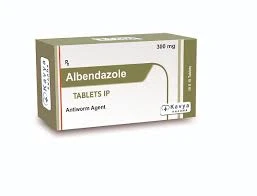- Afrikaans
- Albanian
- Amharic
- Arabic
- Armenian
- Azerbaijani
- Basque
- Belarusian
- Bengali
- Bosnian
- Bulgarian
- Catalan
- Cebuano
- Corsican
- Croatian
- Czech
- Danish
- Dutch
- English
- Esperanto
- Estonian
- Finnish
- French
- Frisian
- Galician
- Georgian
- German
- Greek
- Gujarati
- Haitian Creole
- hausa
- hawaiian
- Hebrew
- Hindi
- Miao
- Hungarian
- Icelandic
- igbo
- Indonesian
- irish
- Italian
- Japanese
- Javanese
- Kannada
- kazakh
- Khmer
- Rwandese
- Korean
- Kurdish
- Kyrgyz
- Lao
- Latin
- Latvian
- Lithuanian
- Luxembourgish
- Macedonian
- Malgashi
- Malay
- Malayalam
- Maltese
- Maori
- Marathi
- Mongolian
- Myanmar
- Nepali
- Norwegian
- Norwegian
- Occitan
- Pashto
- Persian
- Polish
- Portuguese
- Punjabi
- Romanian
- Russian
- Samoan
- Scottish Gaelic
- Serbian
- Sesotho
- Shona
- Sindhi
- Sinhala
- Slovak
- Slovenian
- Somali
- Spanish
- Sundanese
- Swahili
- Swedish
- Tagalog
- Tajik
- Tamil
- Tatar
- Telugu
- Thai
- Turkish
- Turkmen
- Ukrainian
- Urdu
- Uighur
- Uzbek
- Vietnamese
- Welsh
- Bantu
- Yiddish
- Yoruba
- Zulu
10 月 . 12, 2024 20:22 Back to list
what is the best medicine for an upper respiratory infection
The Best Medicine for an Upper Respiratory Infection
Upper respiratory infections (URIs) are a common health issue, affecting millions of people every year. These infections involve the nasal passages, throat, and sinuses and can be caused by viruses, bacteria, or other infections. The most prevalent types of URIs include the common cold and sinusitis. Symptoms may vary from mild to severe and typically include a runny or stuffy nose, sore throat, cough, sneezing, and fever. This article examines the best medicines for managing upper respiratory infections, focusing on relieving symptoms and promoting recovery.
Understanding Upper Respiratory Infections
URIs are predominantly caused by viral pathogens, with rhinoviruses being the most common culprits. Unlike bacterial infections, which may require antibiotics, viral infections usually resolve on their own. However, over-the-counter medications can significantly alleviate symptoms and improve comfort during the recovery process.
Symptomatic Relief
1. Decongestants Medications such as pseudoephedrine (Sudafed) or phenylephrine can reduce nasal congestion by narrowing blood vessels in the nasal passages, allowing for improved airflow. These medications are effective but should be used with caution; prolonged use can lead to rebound congestion.
2. Antihistamines These medications, including diphenhydramine (Benadryl) and loratadine (Claritin), are particularly useful if allergy symptoms exacerbate your URI. They work by blocking histamine, a chemical that causes allergy symptoms, thereby providing relief for a runny nose and sneezing.
3. Cough Suppressants and Expectorants For individuals experiencing significant coughing, cough suppressants containing dextromethorphan can help reduce the urge to cough. Conversely, expectorants like guaifenesin assist in loosening mucus, making it easier to expel, and are beneficial for productive coughs.
4. Pain Relievers Over-the-counter pain relievers such as acetaminophen (Tylenol) or ibuprofen (Advil) can be helpful for managing fever and sore throat pain. These medications help alleviate discomfort and reduce inflammation, making a URI more bearable.
what is the best medicine for an upper respiratory infection

5. Throat Lozenges and Sprays For sore throats, throat lozenges containing soothing ingredients can provide symptomatic relief. Additionally, throat sprays with analgesics may help numb the throat and reduce pain when swallowing.
When to See a Doctor
While most upper respiratory infections are mild and resolve without medical intervention, some scenarios may warrant a visit to a healthcare professional. If symptoms persist for more than ten days, worsen after initial improvement, or are accompanied by high fever, difficulty breathing, or severe headaches, it is crucial to seek medical advice. In such cases, a healthcare provider may prescribe antibiotics if a bacterial infection is suspected.
Preventive Measures
Aside from symptomatic treatment, preventive measures are essential in reducing the risk of URIs. Good hygiene practices such as frequent handwashing, using hand sanitizers, and avoiding close contact with infected individuals play a vital role in prevention. Additionally, annual flu vaccinations can help reduce the risk of catching certain strains of the influenza virus, which can lead to severe respiratory infections.
Natural Remedies and Home Care
While medications can help, many individuals prefer natural remedies to support recovery. Staying hydrated, using a humidifier, and taking warm showers can help alleviate congestion. Natural ingredients like honey, ginger, and garlic are known for their anti-inflammatory and immune-boosting properties and can be included in a diet to support overall health during an illness.
Conclusion
In summary, upper respiratory infections are often self-limiting conditions that benefit from symptomatic treatment rather than aggressive medical intervention. Medications such as decongestants, antihistamines, cough suppressants, and pain relievers play a crucial role in managing and alleviating symptoms. It is essential to follow preventative measures and consider consulting a healthcare professional when necessary. By combining appropriate medications with self-care strategies, individuals can navigate the discomfort of URIs and support their recovery effectively.
-
The Power of Radix Isatidis Extract for Your Health and Wellness
NewsOct.29,2024
-
Neomycin Sulfate Soluble Powder: A Versatile Solution for Pet Health
NewsOct.29,2024
-
Lincomycin Hydrochloride Soluble Powder – The Essential Solution
NewsOct.29,2024
-
Garamycin Gentamicin Sulfate for Effective Infection Control
NewsOct.29,2024
-
Doxycycline Hyclate Soluble Powder: Your Antibiotic Needs
NewsOct.29,2024
-
Tilmicosin Premix: The Ultimate Solution for Poultry Health
NewsOct.29,2024













